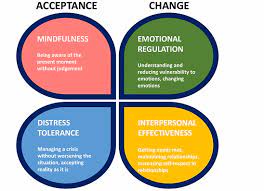Alcohol is a social lubricant. It’s a drug that we use to relieve stress, relax, and have some fun. But for some people, alcohol can take on a more sinister role. Alcohol use disorder (AUD) is a serious problem that affects millions of people. And it’s not just people who abuse alcohol; even those who consume alcohol in moderation can develop AUD if they have certain risk factors. In this blog post, we will discuss the basics of AUD and what you can do if you or someone you know is struggling with this disorder.
Contents
What Is Alcohol Use Disorder?

Alcohol use disorder is a medical condition that involves a pattern of hazardous drinking, causing impairments in an individual’s ability to fulfill obligations and social roles. It is marked by an inability to control the amount of alcohol consumed, preoccupation with drinking, a physical alcohol dependence (withdrawal symptoms when not drinking), tolerance (needing more and more to feel the same effects), and a negative emotional state when not drinking.
Symptoms of alcohol use disorder can include neglecting responsibilities, problems with relationships, mental health issues (anxiety, depression), and physical health problems, such as liver damage.
What is DBT?
Dialectical behavior therapy (DBT) is a type of therapy that is used to help people with alcohol use disorder. DBT focuses on teaching the person how to manage their emotions, thoughts, and behaviors. The goal is to help the person learn how to control their drinking and live a more stable life.
DBT is based on the idea that people with alcohol use disorder have problems with both their thinking and their behavior. The therapist will work with the person to identify these problems and then teach them ways to solve them. Some of the techniques that are often used in DBT include:
DBT is an evidence-based practice, meaning that it has been proven to be effective in treating people with alcohol use disorder. It is an individualized approach and the therapist will work closely with the person to develop a treatment plan that works best for them. With DBT, people can learn how to manage their drinking and create healthier habits. This can lead to a more fulfilling and stable life.
Goals of DBT

The goal of DBT for alcohol use disorder is to help individuals learn how to identify and manage their drinking behaviors in a way that supports their overall mental health and well-being. The steps that individuals take toward this goal include:
- Recognizing when they are drinking too much.
- Identifying what triggers them to drink.
- Breaking the cycle of drinking by recognizing when they have had too much and why they drank.
- Making changes to their drinking habits, such as cutting back on how much they drink or choosing different types of drinks.
- Taking support and advice from a therapist or counselor who is familiar with DBT for alcohol use disorder, to maintain progress over time.
- Develop alternative coping strategies to drinking, such as exercise, journaling, and mindfulness.
- Staying mindful of potential relapse triggers to prevent a return to old habits.
- Finding healthy ways to enjoy social events without alcohol or drugs.
- Developing the ability to recognize and manage stress and emotions without the need for alcohol.
- Develop a plan for long-term sobriety and maintain it with continued support from a therapist or counselor.
How Does DBT For Alcohol Use Disorder Work?
DBT for Alcohol Use Disorder is a form of therapy that was designed to help people with alcohol use disorder. It is based on the idea that people with alcohol use disorder have problems with their cognitive function, emotional regulation, and behavior. DBT focuses on helping people to learn how to better manage these problems.
- The first step in DBT for Alcohol Use Disorder is to assess the person’s needs. This includes assessing their goals and objectives, as well as their current situation.
- Next, DBT therapists will work with the person to identify any negative thoughts or behaviors related to alcohol use. They will also help the person develop positive thought patterns and behaviors around drinking.
- DBT for Alcohol Use Disorder also focuses on helping the person become more aware of their environment and surroundings. This includes learning about safe drinking habits, as well as strategies for coping with stress or adverse situations related to alcohol use.
- Next step, DBT for Alcohol Use Disorder therapists will work with the person on developing healthy relationships both inside and outside of the context of drinking. In DBT, the therapist works with the person to develop skills for communicating effectively, setting boundaries, and managing difficult emotions.
- Finally, DBT therapists will work with the person to create a plan for ongoing support. This includes creating strategies for relapse prevention and developing positive coping mechanisms when cravings arise.
What are the Different Types of DBT For Alcohol Use Disorder?

There are many different types of DBT for alcohol use disorder, but all aim to help people manage their behavior and stressors related to alcohol use.
The most common type of DBT for alcohol use disorder is the 12-step program. The 12-step program, and it’s the most common type of DBT for alcohol use disorder. It helps people learn how to deal with their emotions and behaviors around drinking, and it offers support and guidance along the way.
Other types of DBT for alcohol use disorder might also include:
- Cognitive Restructuring Therapy: It is designed to help people identify and change any dysfunctional thoughts and beliefs surrounding alcohol use.
- Motivational Interviewing: This type of DBT for alcohol use disorder focuses on helping people tap into their motivation and goals for changing their behaviors around drinking.
- Behavioral Activation: This type of DBT helps people focus on the things that can be done to replace drinking with healthier activities, such as exercise or socializing.
- Family Therapy: This type of DBT focuses on the overall family dynamic and how alcohol use is impacting it. It can help the entire family support recovery and make lasting changes to reduce drinking behaviors.
No matter which type of DBT for alcohol use disorder is chosen, each seeks to provide a supportive environment and strategies that can be used to manage emotions, stressors, and behavior related to drinking. With the help of a professional, individuals can find the best type of DBT for their needs and begin to make lasting changes.
What are the Benefits of DBT for Alcohol Use Disorder?

DBT for Alcohol Use Disorder can provide a variety of benefits, including reducing anxiety and improving mood. DBT also helps participants learn new skills to manage emotions and behaviors related to alcohol use. These skills can help them reduce drinking and improve their overall quality of life.
One study found that people who received DBT treatment showed significant reductions in their drinking habits and levels of distress. They also reported increased levels of satisfaction with life and better relationships. These benefits were not seen in participants who received standard treatment alone.
DBT is a validated treatment method that is effective in treating alcohol use disorder. It is available in many clinics and hospitals across the United States, and it can be tailored to meet the needs of each patient.
Another benefit of DBT for Alcohol Use Disorder is that it helps individuals understand their triggers and how to better manage them. This type of therapy can help people learn to identify negative thought patterns, develop coping strategies, and set achievable goals.
These skills can be used after treatment has been completed to stay on track with recovery and maintain sobriety.
How Do I Start Using DBT For Alcohol Use Disorder?
If you’re struggling with alcohol use disorder, DBT may be the right therapy for you. This type of cognitive-behavioral therapy is based on the theory that problem drinking can be traced back to negative thoughts and behaviors.
- To begin treatment, first, make an appointment with a mental health professional who is experienced in DBT. This step is important because DBT is not a “one-size-fits-all” type of therapy and requires specialized training. During the initial appointment, your therapist will likely assess to determine if DBT is appropriate for your needs.
- Once you begin treatment, you and your therapist will work together to identify any negative thoughts and behaviors associated with your drinking. From there, you’ll work on developing healthier ways of thinking and acting that can help reduce and eventually stop the urge to drink.
- When working with a therapist, it’s important, to be honest, and open about your feelings and experiences. If you’re feeling overwhelmed or need extra support outside of therapy sessions, your therapist can provide you with resources to help, as well as refer you for additional treatment if necessary.
Conclusion
If you are struggling with alcohol use disorder, it is important to seek professional help. DBT can be an effective treatment for people who have difficulty managing their emotions and distorted thinking around alcohol. If you or someone you know needs treatment for alcohol use disorder, don’t hesitate to reach out for help.
For more information, please contact MantraCare. Addiction is a chronic and often relapsing disorder characterized by compulsive drug-seeking and use despite harmful consequences. If you have any queries regarding Online Addiction Counseling experienced therapists at MantraCare can help: Book a trial Online therapy session


